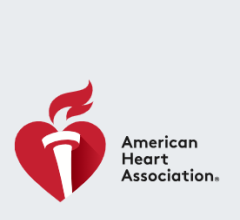
November 19, 2021 — Adults treated with empagliflozin during hospitalization for acute heart failure experienced a clinical benefit such as increased survival, lower risk of heart failure hospital readmission and an overall improvement in their quality of life, according to the late-breaking EMPULSE Trial presented at the American Heart Association’s Scientific Sessions 2021.
Empagliflozin is a medication originally used to treat people with type 2 diabetes and has recently become an established therapy in patients with chronic heart failure. The “Efficacy and Safety of Empagliflozin in Hospitalized Heart Failure Patients: Main Results from the EMPULSE Trial” set out to determine whether this medication, an SGLT2 inhibitor, could help adults hospitalized for acute heart failure once their condition had stabilized. Heart failure is classified as “acute” when patients experience fluid build-up in the lungs, and it requires urgent treatment and hospitalization. Once released from the hospital, these patients are at a greater risk of death, re-hospitalization and a lower quality of life.
“This is the first time we have really seen this type of medication work so effectively and safely in patients who were hospitalized for acute heart failure, regardless of heart failure history or diabetes status,” said the study’s lead author Adriaan Voors, M.D., Ph.D., a cardiology professor at the University Medical Centre Groningen in The Netherlands. “These results may lead to earlier and more frequent treatment with empagliflozin, which may improve the lives of more people with heart failure.”
530 adults with an average age of 68 were enrolled in the double-blind, randomized, controlled study, of which 66% of participants were men. Participants had been hospitalized for acute heart failure, however, their conditions had to be stable before trial enrollment. The participants were divided into two equal groups: one group received a 90-day supply of 10 mg tablets of empagliflozin; the second group received a 90-day supply of placebo pills. They were instructed to take one tablet daily for 90 days.
Researchers defined improvements in the participants’ clinical outcome by the number of deaths; heart failure-related events (hospitalization, urgent or unplanned visit due to heart failure); the time to the first heart failure event; or an improved score of at least five points on the Kansas City Cardiomyopathy Questionnaire, a 23-item self-administered survey used to measure the patient’s perception of their health status. The questionnaire uses a score of zero, indicating bothersome, daily symptoms, to 100, indicating no symptoms within the past two weeks.
The study found:
- Adults treated with empagliflozin were 36% more likely to experience a clinical benefit, such as reduced all-cause mortality, fewer heart failure events and an improvement in heart failure symptoms compared to the study participants who received the placebo.
- Benefits included reduction in all-cause mortality (4.2% among adults treated with empagliflozin vs. 8.3% in those who received the placebo), reduced heart failure events (10.6% for participants taking empagliflozin vs. 14.7% for those who received the placebo) and a greater improvement in heart failure symptoms compared to those taking a placebo.
- Participants experienced improvements in all-cause mortality, heart failure events or an improvement in heart failure symptoms regardless of the type of heart failure or whether they had type 2 diabetes.
- Participants taking empagliflozin had fewer serious heart failure events compared to those taking a placebo (32.3% vs. 43.6%, respectively).
“Even though there are several medicines available to improve clinical outcomes in patients with chronic heart failure, very few medicines have proven to benefit patients with new, acute onset of heart failure needing hospitalization,” said Voors. “Our findings indicate that empagliflozin may help to improve outcomes for these patients without an increase in serious adverse events effects.”
Researchers note that a limitation to the study is a relatively small sample size.
Co-authors are Christiane E. Angermann, M.D.; John R. Teerlink, M.D.; Sean P. Collins, M.D.; Mikhail N. Kosiborod, M.D.; Jan Biegas, M.D.; João Pedro Ferreira, M.D.; Michael E. Nassif, M.D.; Mitchell Psotka, M.D.; Jasper Tromp, M.D.; Martina Brueckmann, M.D.; Jon P. Blatchford, M.D.; Afshin Salsali M.D.; and Piotr Ponikowski, M.D. Authors’ disclosures are listed in the abstract.
This research was funded by Boehringer Ingelheim and Eli Lilly & Company.
Find More AHA 2021 Late-breaking News


 November 14, 2025
November 14, 2025 









